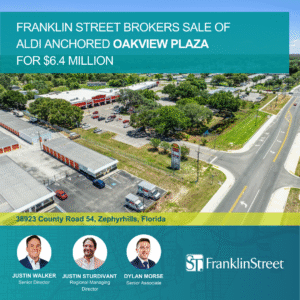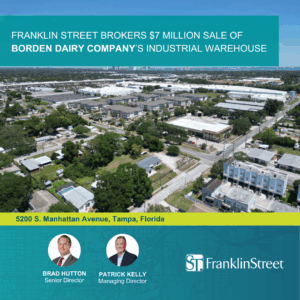The slow recovery of Florida’s economy is giving a modest boost to the commercial real estate market, but we have a long way to go before landlords of office and industrial space hold the upper hand in lease negotiations. For the next 18 months, property managers will have to watch expenses while working with asset managers to make improvements that win over tenants.
The office vacancy rate in major Florida markets has been stable for much of the past year, hovering between 12 percent and 13 percent, according to CoStar surveys. The industrial vacancy rate has been much healthier, at less than seven percent in South Florida, under nine percent in Jacksonville, and below 10 percent in Orlando and Tampa Bay.
However, those figures aren’t low enough to spur construction. Few commercial real estate investors are moving forward unless they have tenants in place that will take most, if not all, of the space in a building when it is completed.
During this transition period, property managers should continue to push down expenses while luring and retaining tenants. Property managers can slice costs in some areas through competitive bidding and tweaking of contract terms.
For example, a property manager can reduce insurance premiums by soliciting offers from multiple carriers. New players are often more aggressive in pricing as they seek to gain market share. A premium can also be reduced if the property owner is willing to raise the deductible on his or her current policy. Conversely the market is seeing Landlords increase their property and liability insurance from, say, $1 million to $3 million, or even $5 million.
Landlords can also apply price pressure to janitorial and lawn service companies. These businesses are highly competitive, so vendors work hard to obtain and retain clients. Renew contracts annually and solicit at least three bids.
When a new tenant takes an entire floor, it is suggested they hire a space planner to keep down tenant improvement costs. The planner will optimize the existing floor layout and find ways to preserve existing walls, ceiling panels and lights.
Those savings will partly offset construction costs and rent concessions. Until space becomes tight, tenants will be able to demand—and get—benefits such as remodeling and one month free rent for each year of the lease. Property managers must factor those items into the lease rate and cash flow to see if a deal makes financial sense.
Holding down expenses must be balanced against the need to stay competitive. Tenants shop not just price, but quality. If a warehouse-distribution center has a truck turnaround court that’s only 100 feet deep, it will be at a disadvantage to a property with the current standard of 300 feet that better accommodates today’s larger trucks. Like it or not, the owner may have to expand that space in order to avoid losing tenants or to compete for new ones.
Office buildings also have to keep pace. Companies now expect high-speed Internet access, and they want even bigger pipes and fiber-optical connections running into the building. Some institution-quality tenants such as banks look for buildings with two connections so that they are never offline.
Upgrades cost money and they may not have an immediate return on investment, but high Internet speeds are a necessity if an office building is going to attract tenants or keep its current occupants from being lured away.
The same challenge exists for parking at office buildings. Older code requirement of four spaces per 1,000 sq. ft. has given way to five-to-six spaces. If office workers complain of not being able to find open spots, a property manager will have to get creative about squeezing more vehicles into the same parking lot or deck. One solution: Restripe with more spaces for compact vehicles.
Adjustments such as these will help property managers get through the next 18 months when, hopefully, the market balance will tip toward landlords. Until then, property managers will need people with technology, legal and environmental smarts. The right team will thrive, not matter what the market conditions.
Monte Merritt is senior director in the Jacksonville, Florida, office of Franklin Street. He focuses on landlord and tenant representation and has completed more than 4 million square feet in transactions in the North Florida area. Merritt can be reached at 904-271-4120 and [email protected].



